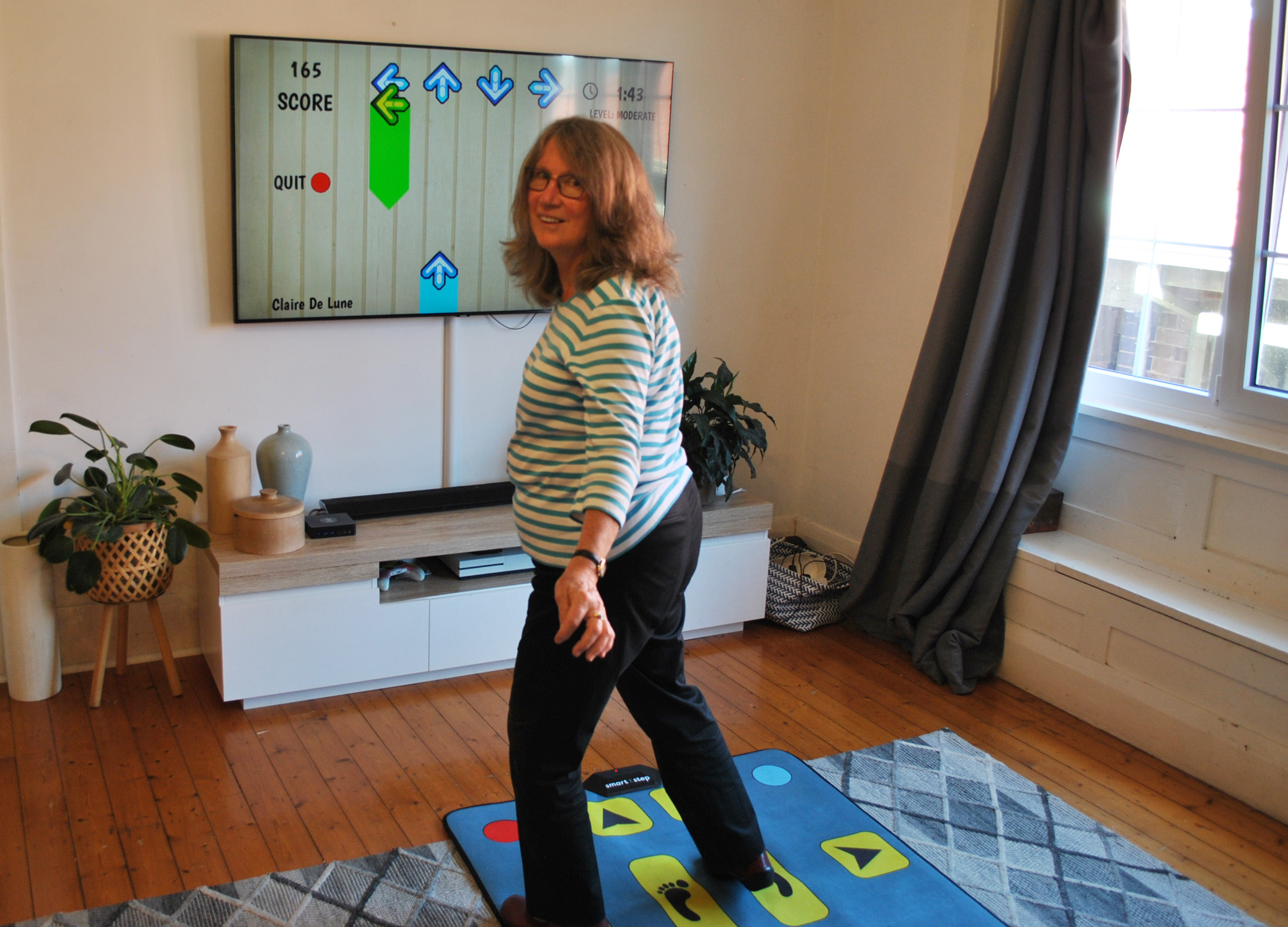An exercise program to improve mobility, balance and cognitive function using gamification that is being trialled at four Allity residential aged care facilities has been shown to reduce falls in older people in a new study.
The smart±step program uses a wireless step mat and computer system that connects to a television screen or monitor. It has been designed by researchers from Neuroscience Research Australia (NeuRA) in association with Allity under a commercialisation agreement.
The program uses a dance mat and adapted versions of popular video games to ‘step train’ the brain for mobility, balance and cognitive function, making it particularly useful for the 400,000 Australians living with dementia.
A randomised control trial conducted by a team of NeuRA and University of NSW researchers published in Nature Medicine found gamified step exercises were effective at preventing falls in people over the age of 65, reducing the number of falls by 26 per cent when compared to a control group.
“Regular balance-challenging exercise is effective at preventing falls, so we tried to make exercise fun and easy to do,” lead author Daina Sturnieks said.
“It was really encouraging to see that smart±step, an exercise gaming console that anyone can enjoy at home completely unassisted from a therapist, brought a benefit to older people by preventing falls.”
Dr Sturnieks said the advantages of smart±step exercise games – or exergames – go beyond physical exercise benefits: people are also undertaking cognitive training, which is easily incorporated into these games.
“These exergames require people to think quickly, unlike traditional exercise programs where you often just go through the movements,” she said.
The smart±step exergames involve stepping on a mat, which acts as a controller. The exergames themselves vary in content and range from collecting treasures to stomping on moving cockroaches or avoiding obstacles.
This study looked at the use of exergames in older people living in the community, but it is also being trialled in residential aged care.
Allity chief operating officer Glen Hurley said smart±step was a fun and safe way to help transition residents back to their regular routines.
“In addition to boosting fitness and cognitive health, smart±step gives our residents a small dose of healthy competition, and we can already see how it is improving their sociability.
“So far, our most popular games are ‘La Cucaracha’, ‘Toad Runner’ and ‘Block Stacker’.
“The best thing about the program is that it’s so simple to use. The program is having an immediate effect on boosting morale and the motivation to be active and healthy,” he said.


